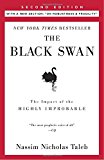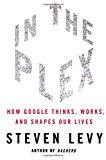There are, arguably, two kinds of change. Fast change usually driven from a point of crisis and long slow evolutionary change. Most of the attention gets focused on the first kind of change. It’s the most effective, because companies usually don’t have much choice. The second kind of change is really hard. It usually fails because resistance usually wins over the long road. Inertia is a powerful force. But that doesn’t mean it can’t be done. I’ve learned a tactic that works, without anyone knowing that it works.
There’s a saying that goes something like, “You just can’t tell some people something they don’t already know.” People don’t want to hear something unless it’s already something they know/believe. We’re all guilty of it sometimes, but what if your job is to convince people of something they don’t know and very likely, don’t want to know? In a short term, crisis driven situation this is less of a problem because people have resigned themselves to change and if you do come up against this resistance, the reality of the inevitable usually wins out (if it’s going to win out). But this kind of resistance can be devastating when there is no crisis. Instead you have to take the approach of letting other people discover this truth on their own.
If failure is the best learning tool then you sometimes have to allow organizations to make a series of iterative mistakes in order to get them to where you want them to go. This may sound counter intuitive but let me explain. The reason you can’t tell someone something they don’t already know, is because they think they already have the answer to the problem, and it’s not your answer. In scientific terms, they have a hypothesis, so test it. If there hypothesis isn’t going to result in catastrophic failure and if their hypothesis at least moves them closer to the right answer and not further away from it, then put it to the test.
When the hypothesis is tested if you’re still not at the desired end goal, then help them form a new hypothesis and run it again. Hopefully with each resulting test you are able to take larger and larger steps in the right direction. And who knows, maybe their hypothesis will be right. It’s arrogant to think that we always have the right answer and everyone else is wrong.
“You just can’t tell some people something they don’t already know.”
Basically what you’re doing is you’re allowing other people to learn. You’re allowing them come to the same conclusions as you. We all have different skill sets. We all have areas of strength and areas of weakness. We’ll never improve on our weaknesses unless we’re given the opportunity to try and fail. This can be very frustrating for those of us that know the answer (or think we do). We may have already learned this lesson, but it doesn’t mean we can rob others of the opportunity to learn those lessons themselves. We’re doing them, ourselves or our organizations any favors.
The challenge comes in knowing when it’s not the right time to let people learn on their own. What if their hypothesis, is moving in the wrong direction? What if the need for drastic change is approaching faster than our iterative change is moving us? If this is the case then we have to exert more force. And hopefully by allowing people to come to the same conclusion you have you will have built some trust along the way.
Sometimes you have to make a series of iterative mistakes in order to get where you want to go.
I often explain this as moving the rolling boulder. As a Boy Scout growing up in Idaho, we regularly went camping in various camp sites all over the Rocky Mountains. One of our favorite activities was to climb to the top of the mountain and then roll boulders down from the top. Great fun.
Now imagine for a minute that your organization is one of those rolling boulders. A boulder is a very difficult thing to get rolling in the first place. They’re not perfectly round and there’s a lot of inertia to deal with. Once you get it moving you then have a lot of momentum, but the boulder isn’t perfectly round, so it’s never going to go straight. What do you do if the boulder gets off course? Do you stop it and try and restart it? Not if you can help it.
What you do is you start applying pressure to one side, so that it veers back on course. If your organization has momentum and is moving in the right direction you need to apply enough force to move it in the right direction but not so much that you risk stopping it. The only time you try and stop a boulder if it’s in serious risk of causing serious damage to people or property.
So unless your organization is in serious danger, I recommend you get used to always being a little off course. Keep applying pressure and keep moving it in the right direction but don’t get so frustrated that you apply too much pressure and risk slowing things down, because right now, if you’re moving in the basic direction, that’s better than not moving at all.
Similar Posts:
- Evolution vs. Revolution: Which is Better for Organizational Change?
- The 5 Stages of Dealing with Change
- To Succeed You Must Be Willing To Change. To Change You Must Be Willing To Look Stupid
# of Comments 2
# of Comments 4
# of Comments 8







